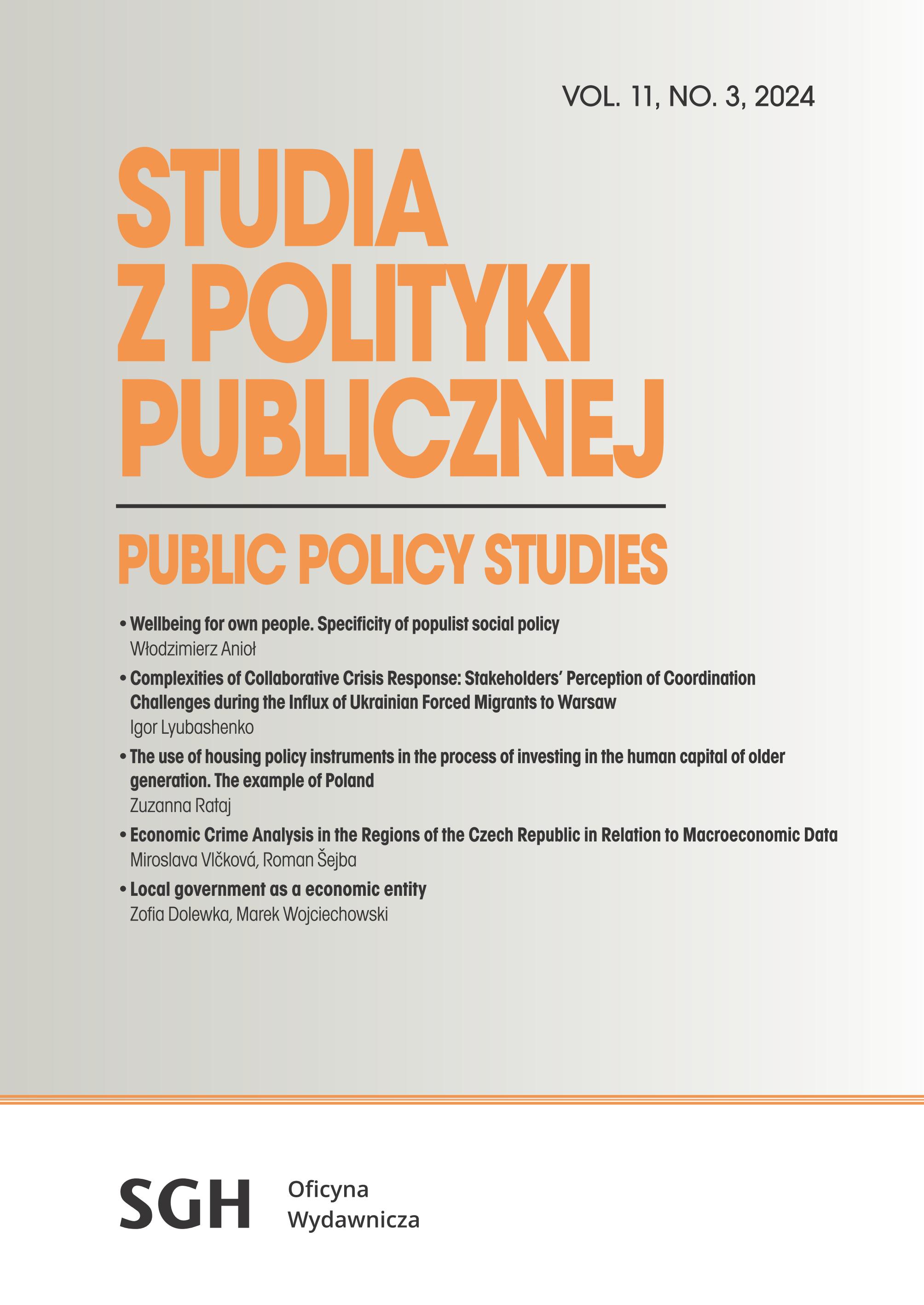Complexities of Collaborative Crisis Response:
Stakeholders’ Perception of Coordination
Challenges during the Influx of Ukrainian
Forced Migrants to Warsaw
Complexities of Collaborative Crisis Response:
Stakeholders’ Perception of Coordination
Challenges during the Influx of Ukrainian
Forced Migrants to Warsaw
Author(s): Igor LyubashenkoSubject(s): Peace and Conflict Studies, Asylum, Refugees, Migration as Policy-fields
Published by: Szkoła Główna Handlowa w Warszawie
Keywords: public management; crisis; policy response; multi-sectoral coordination; migration;
Summary/Abstract: The article delves into the challenges of multi-sectoral coordination in emergency foodrelief for forced migrants from Ukraine in Warsaw. Utilising the COM-B model, we an-alysed interviews with representatives from public authorities, the private sector, andNGOs to identify perceived barriers in capability, opportunity, and motivation affectingcollaboration. Our findings indicate a consensus across sectors regarding capability andopportunity barriers. Key capability issues include coordination complexities, communi-cation gaps, and unclear roles, leading to systemic inefficiencies and response delays. Op-portunity barriers are predominantly linked to procedural and bureaucratic challenges,exacerbated by conflicting policies and cultural factors. Motivational challenges differ bysector, ranging from frustrations associated with attempts to collect high-quality donationsin the public sector, operational risks and misuse concerns in the private sector, to moraledecline due to criticism in NGOs.
Journal: Studia z Polityki Publicznej
- Issue Year: 11/2024
- Issue No: 3
- Page Range: 37-53
- Page Count: 17
- Language: English

